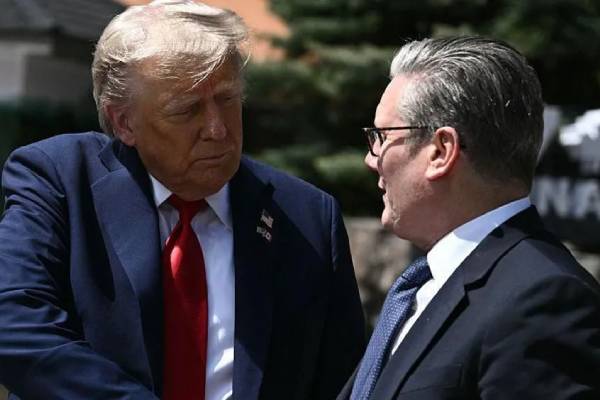The UK and US have struck a deal to ease some trade barriers, reducing tariffs on British car exports and removing charges on certain US products entering the UK.
President Donald Trump approved the pact this week following negotiations to implement an agreement made last month.
The deal cuts US duties on UK car imports from 25% to 10% — a move Prime Minister Sir Keir Starmer described as a “very important day” for both countries.
The White House also announced it would lift tariffs on certain aerospace products and allow 1.4 billion litres of US ethanol into the UK tariff-free.
The UK, meanwhile, will cut its 20% tariff on US beef and raise its quota to 13,000 tonnes — a move that has raised concerns in some quarters about food standards and agricultural competition.
Mike Hawes, head of the Society of Motor Manufacturers and Traders, called the deal “a huge reassurance” for the industry, adding it provided a competitive edge over European rivals.
Some British industries remain nervous. UK Steel called for clarity on the “melted and poured” requirement for steel, while ABF Sugar — which owns the UK’s largest bioethanol plant — said the deal could undermine its future and put 200 jobs at risk.
Business and Trade Secretary Jonathan Reynolds insisted food standards would not be compromised and pledged to update parliament on quota implementation.
The deal falls short of a full free trade agreement — something previously advocated by advocates of Brexit — and opposition parties in the UK have demanded greater transparency.
Conservative leader Kemi Badenoch dismissed it as a “tiny tariff deal”, while Liberal Democrat Treasury spokesperson Daisy Cooper called for an impact assessment to be made public.
The US president described the pact as a “major trade deal”, although under US law, a fully-fledged free trade agreement must be approved by Congress.





